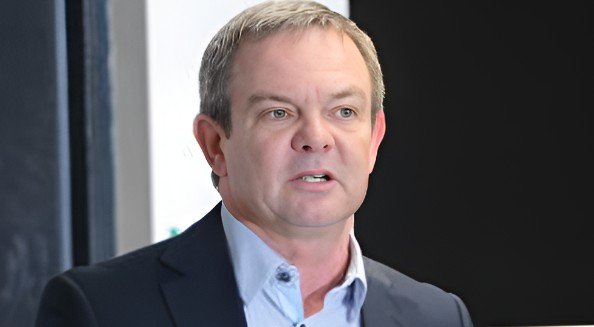Ian Haythornthwaite: A Comprehensive Insight into His Career, Leadership and Challenges

Ian Haythornthwaite, a prominent figure in British public service and finance, was born in September 1959. Raised in the United Kingdom, he grew up at a time when the country was undergoing rapid social and economic changes. His early life shaped a keen understanding of public responsibility and the role of strong institutions. Ian’s academic path reflected a passion for business and governance. He pursued higher education with a focus on accounting and finance, laying the groundwork for a career that would bridge the worlds of public service and financial management.
Entry into Finance and Public Service
From the outset of his career, Ian Haythornthwaite demonstrated a natural ability to merge financial strategy with organisational leadership. His early roles in the finance sector allowed him to develop deep technical expertise in accounting and fiscal planning. This expertise soon translated into opportunities within high-profile public institutions, where his skills in financial oversight and strategic planning became highly valued. Throughout these formative years, Ian built a reputation for diligence, clarity and a commitment to transparency in all aspects of financial governance.
Leadership within the BBC
One of the defining chapters of Ian Haythornthwaite’s career was his role as Director of Finance at the British Broadcasting Corporation (BBC). At the heart of the UK’s media landscape, the BBC demands a unique balance of creativity and strict financial stewardship. Ian’s appointment placed him at the centre of this balance, where he was responsible for ensuring that public funds were managed effectively while supporting the broadcaster’s mission to inform, educate and entertain. His leadership in this position highlighted his ability to navigate complex budgets and align financial decisions with the BBC’s long-term strategic goals.
Academic and Strategic Roles
Beyond the world of broadcasting, Ian Haythornthwaite extended his influence into academia and strategic development. He served as a Pro-Vice Chancellor at the University of Central Lancashire, where his insights into governance and financial strategy helped shape the university’s future direction. This role demonstrated his versatility, showing that his leadership could thrive not only in media and finance but also in education. His tenure strengthened the university’s financial health and contributed to enhancing its reputation as a centre of learning and innovation.
Chair of the Countess of Chester Hospital NHS Foundation Trust
Ian Haythornthwaite’s commitment to public service was further demonstrated through his appointment as Chair of the Countess of Chester Hospital NHS Foundation Trust. In this role, he oversaw the governance of one of the North West’s key healthcare institutions. Hospitals of this scale require a steady hand and a deep understanding of both financial management and patient care priorities. Ian’s experience in finance and organisational leadership positioned him well to guide the Trust through the complex landscape of NHS funding and public health policy. His focus on transparency and accountability was a defining feature of his approach to governance.
Challenges and Controversies
Leadership at this level inevitably brings challenges, and Ian Haythornthwaite’s time as Chair of the Countess of Chester Hospital NHS Foundation Trust was no exception. In 2025, a tribunal heard the case of Dr Susan Gilby, the former chief executive of the Trust, who claimed unfair dismissal and alleged that she had been subjected to intimidating and aggressive behaviour. The tribunal ruled in her favour, a decision that drew national attention and generated debate over the culture of leadership within the NHS. Ian, while maintaining his denial of the claims, faced significant public scrutiny. The case highlighted the complexities of leadership within the public health sector, where high-stakes decisions and interpersonal dynamics are often under the microscope.
Resignation and Aftermath
Following the tribunal and the surrounding media attention, Ian Haythornthwaite stepped down from his position as Chair of the Trust with immediate effect. This resignation marked a turning point in his career, prompting reflection on the pressures of public service leadership and the need for robust organisational culture. While controversy can overshadow achievements, Ian’s departure also sparked wider discussions about governance, accountability and the support systems necessary for leaders within the NHS.
Broader Business and Financial Involvement
In addition to his public service roles, Ian Haythornthwaite has held directorships in various companies across the United Kingdom. Many of these were based in Lancashire and reflected his continued engagement with business and financial oversight. These roles provided him with a platform to apply his expertise beyond the confines of public service, illustrating a career that successfully bridges the private and public sectors. His involvement in multiple organisations demonstrates both versatility and an enduring commitment to sound financial management.
Legacy in Governance and Finance
Ian Haythornthwaite’s career offers a multifaceted legacy. On one hand, he is recognised for his significant contributions to public broadcasting, higher education and healthcare governance. His work at the BBC and the University of Central Lancashire underscores a long-term commitment to institutions that serve the public good. On the other hand, the challenges he faced as Chair of the Countess of Chester Hospital NHS Foundation Trust underscore the demanding nature of high-level leadership, where decisions and personal interactions are subject to intense scrutiny.
Lessons from a Public Career
The story of Ian Haythornthwaite serves as a case study in the realities of modern leadership. It illustrates how success in finance and governance requires not only technical skill but also resilience and the ability to manage complex human dynamics. His career demonstrates that even those with a strong track record in financial management can face unforeseen challenges when dealing with the pressures of public service. For aspiring leaders, his experience offers valuable lessons about accountability, communication and the importance of maintaining an ethical and transparent leadership style.
Personal Qualities and Professional Ethos
Throughout his career, Ian Haythornthwaite has been noted for his strategic thinking and attention to financial detail. Colleagues and contemporaries have observed his capacity for clear decision-making and his dedication to maintaining high standards of financial integrity. These qualities, while essential in his roles at the BBC, the university and the NHS, also became central to his reputation as a leader capable of operating across multiple sectors.
The Wider Context of UK Public Service
Ian Haythornthwaite’s journey cannot be separated from the broader context of UK public service over the past few decades. From the evolving role of the BBC in a digital age to the ongoing challenges facing the NHS, his career reflects the tensions and transformations that define the British public sphere. His experience provides a window into how institutions adapt to changing expectations, and how leaders must balance financial responsibility with the need to foster trust and positive organisational culture.
Future Reflections
Although his resignation from the Trust marked the end of a significant chapter, Ian Haythornthwaite’s career continues to offer insights for future leaders and policy makers. Whether in advisory roles or through mentoring the next generation of public service leaders, his expertise in financial management and governance remains valuable. The debates and lessons arising from his experiences will continue to influence discussions around leadership, accountability and public sector reform.
Conclusion
Ian Haythornthwaite’s career is a testament to the complexities of leadership in the United Kingdom’s public and financial sectors. From his early years in finance to prominent roles at the BBC, in higher education and within the NHS, he has demonstrated both the strengths and the vulnerabilities inherent in high-level governance. While controversies have shaped the public narrative around his tenure at the Countess of Chester Hospital NHS Foundation Trust, his broader contributions to public service, financial stewardship and institutional development remain significant. His story is both a cautionary tale and a source of valuable lessons for those who aspire to lead in the challenging and scrutinised arena of public life.



